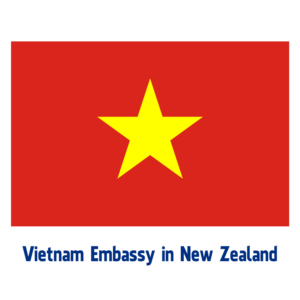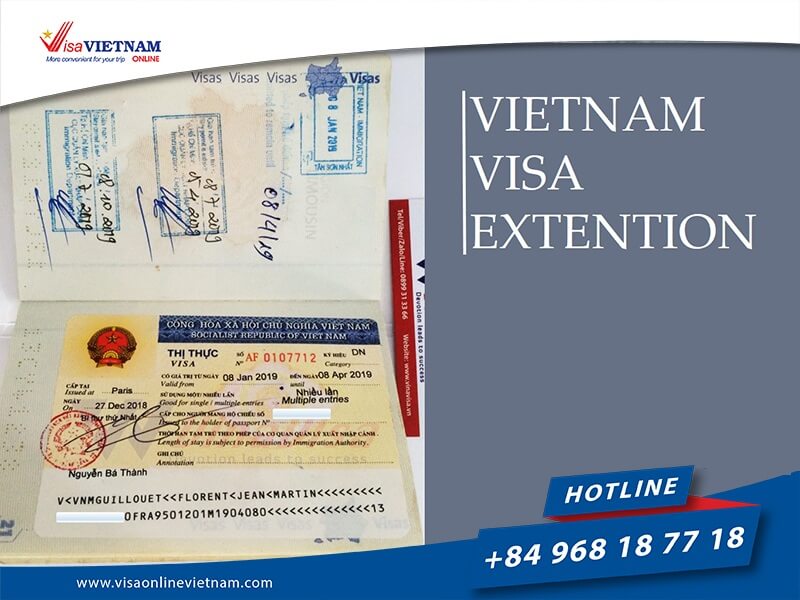
Vietnam Visa for Australians: Complete Guide & Application 2025
Exploring the enchanting landscapes, vibrant cities, and rich cultural tapestry of Vietnam is a dream for many Australian travelers. However, obtaining the necessary visa can often be a daunting task, filled with uncertainties and complexities. This comprehensive guide aims to demystify the Vietnam visa process for Australian citizens, providing you with a seamless and stress-free experience, ensuring your journey to this captivating destination is nothing short of extraordinary.

Understanding the Vietnam Visa Process for Australian Citizens
As an Australian citizen, navigating the Vietnam visa process might seem daunting, but it’s simpler than you think. This guide will provide you with all the necessary information to ensure a smooth and hassle-free visa application experience. By understanding the requirements, procedures, and possible pitfalls, you’ll be well-equipped to embark on your Vietnamese adventure with confidence.
Importance of Obtaining a Vietnam Visa
Vietnam does not grant visa-free entry to Australian citizens. Obtaining a valid visa is an essential requirement for entry into the country. A visa serves as official permission from the Vietnamese government for you to enter, stay, and travel within its borders. Failure to possess a valid visa upon arrival can result in refusal of entry and potential legal consequences, putting a damper on your long-awaited vacation or business trip.
How to Apply for a Vietnam Visa from Australia

There are two primary methods for Australian citizens to apply for a Vietnam visa: online application process and applying through the Vietnamese embassy or consulate.
Online Application Process
The online application process, often referred to as e-Visa, is a convenient option that allows you to apply directly from the comfort of your home. Here’s how it works:
- Visit the official Vietnamese e-Visa website: Access the official website of the Vietnamese Immigration Department, which handles e-Visa applications.
- Complete the online application form: Provide accurate and complete personal information, travel details, and supporting documents as requested.
- Upload required documents: Typically, you’ll need to upload a clear, color scan or digital copy of your passport and a recent passport-style photograph.
- Make the payment: Pay the visa application fee using a secure online payment method, such as a credit or debit card.
- Wait for processing: After submitting your application, the Vietnamese authorities will review your documents and process your visa request. The processing time can vary, so be sure to apply well in advance of your travel dates.
- Receive your e-Visa: If your application is approved, you’ll receive your e-Visa via email, which you’ll need to print and present upon arrival in Vietnam, along with your passport.
Applying through the Vietnamese Embassy
Alternatively, you can apply for a Vietnam visa directly through the Vietnamese embassy or consulate in Australia. This process typically involves:
- Obtaining the visa application form: Visit the embassy’s website or contact them directly to obtain the visa application form and instructions.
- Gathering required documents: Prepare the necessary documents, such as your passport, passport-size photographs, and any additional supporting documents requested by the embassy.
- Submitting the application: Either visit the embassy in person or mail your application, along with the required documents and visa fee payment, to the designated address.
- Waiting for processing: The embassy will process your application and notify you when your visa is ready for pickup or delivery.
It’s important to note that the processing times and specific requirements may vary depending on your purpose of travel and the type of visa you’re applying for.
Types of Vietnam Visas for Australian Citizens
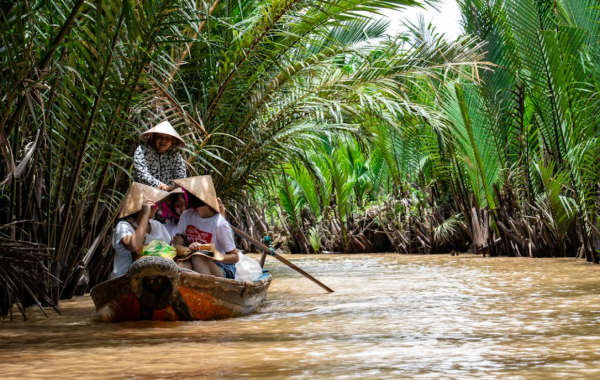
When applying for a Vietnam visa, it’s crucial to understand the different visa types and their respective purposes. The most common visa types for Australian citizens traveling to Vietnam include:
Tourist Visa
If you’re planning a leisure trip or vacation to Vietnam, you’ll need to apply for a tourist visa. This visa type is typically valid for a specific duration, ranging from a few weeks to several months, depending on the purpose and length of your stay.
Tourist visas can be obtained through the online application process (e-Visa) or by applying directly at the Vietnamese embassy or consulate in Australia.
Business Visa
Australian citizens traveling to Vietnam for business purposes, such as attending meetings, conferences, or negotiating contracts, will require a business visa. Business visas are generally valid for a shorter period than tourist visas and may require additional documentation, such as a letter of invitation from a Vietnamese company or organization.
Work Visa
If you plan to take up employment or engage in long-term work in Vietnam, you’ll need to apply for a work visa. This visa type is typically valid for a longer period and requires additional documentation, including a valid work permit and an employment contract from a Vietnamese employer.
It’s essential to ensure that you apply for the correct visa type based on your specific purpose of travel to avoid any complications or potential issues upon arrival in Vietnam.
Requirements for Obtaining a Vietnam Visa
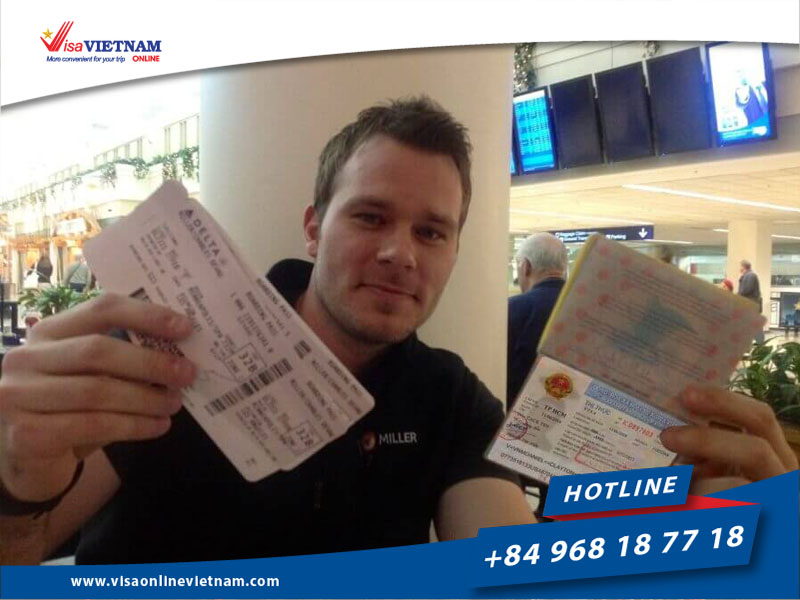
To obtain a Vietnam visa as an Australian citizen, you’ll need to meet certain requirements and provide the necessary documentation. The specific requirements may vary depending on the visa type and method of application, but generally, you’ll need to provide the following:
Passport Validity
Your passport must have a validity of at least six months beyond the intended date of departure from Vietnam. Additionally, it should have at least two blank pages for visa stamping.
Visa Application Form
You’ll need to complete the visa application form accurately and provide all the required personal and travel information. Ensure that all the details you provide are consistent with the information in your passport.
Passport Photos
Recent passport-style photographs are typically required for visa applications. The photographs should meet the specified guidelines in terms of size, background, and quality.
Additional Documents
Depending on the visa type and your specific circumstances, you may need to provide additional supporting documents, such as:
- Proof of employment or financial means
- Travel itinerary or flight reservations
- Hotel bookings or accommodation details
- Letter of invitation or sponsorship (for business or work visas)
- Marriage certificate or birth certificates (for family visas)
It’s essential to carefully review the requirements and ensure that you have all the necessary documents before submitting your visa application to avoid delays or rejections.
Processing Time for Vietnam Visa Applications
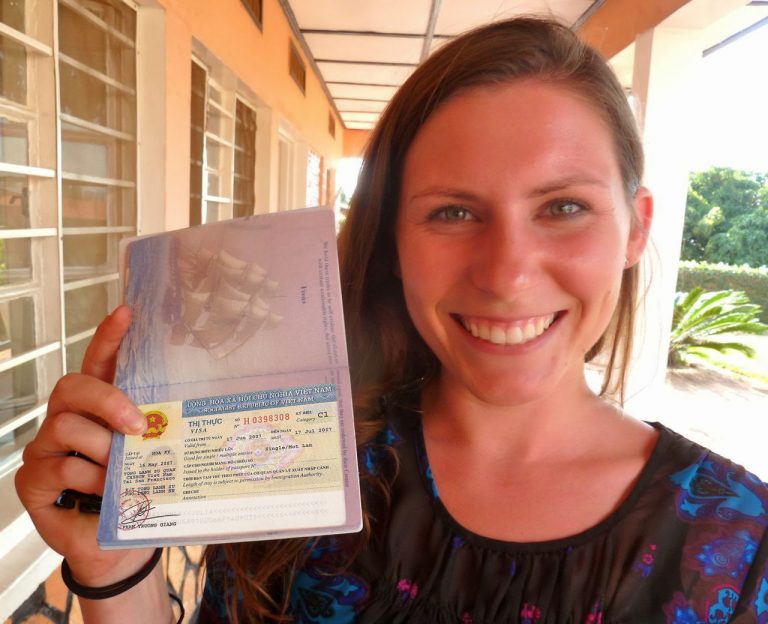
The processing time for a Vietnam visa application can vary depending on the method of application, visa type, and the workload at the relevant authorities. Generally, you can expect the following processing times:
Standard Processing
The standard processing time for a Vietnam visa application submitted through the online e-Visa system or at the Vietnamese embassy or consulate can take anywhere from 3 to 10 business days. However, during peak travel seasons or periods of high demand, the processing time may be longer.
Expedited Processing
If you need your visa processed more quickly, some visa services offer expedited or rush processing options for an additional fee. Expedited processing can significantly reduce the waiting time, often providing your visa within 1-3 business days or even the same day in some cases.
It’s essential to plan ahead and apply for your Vietnam visa well in advance of your travel dates, especially during peak seasons or if you require expedited processing. This will ensure that you receive your visa on time and avoid any last-minute complications or delays.
Fees for Vietnam Visa for Australian Citizens
When applying for a Vietnam visa, you’ll need to pay a visa application fee, as well as any additional service fees, if applicable. The fees can vary depending on the visa type, processing time, and method of application.
Visa Application Fee
The visa application fee for Australian citizens is typically between $25 and $100 USD, depending on the visa type and validity period. This fee is non-refundable and must be paid at the time of application.
Additional Service Fees
If you choose to apply for your Vietnam visa through a visa service provider or opt for expedited processing, you may be required to pay additional service fees. These fees can cover the costs of document handling, courier services, and expedited processing.
It’s important to carefully review the fee structure and ensure that you understand all the associated costs before submitting your visa application. Additionally, some visa service providers may offer discounted rates or package deals, so it’s worth exploring these options to potentially save on costs.
Vietnam Visa on Arrival for Australian Citizens
In addition to the traditional visa application methods, Vietnam also offers a visa on arrival service for certain nationalities, including Australian citizens. This option can be convenient for those who need to travel to Vietnam on short notice or prefer to handle the visa formalities upon arrival.
Eligibility Criteria
To be eligible for the Vietnam visa on arrival service, Australian citizens must meet the following criteria:
- Hold a valid passport with at least six months of remaining validity and at least two blank pages.
- Have a confirmed flight itinerary and accommodation details in Vietnam.
- Provide a recent passport-style photograph.
- Have a valid credit or debit card to pay the visa fees upon arrival.
Procedure for Visa on Arrival
The process for obtaining a Vietnam visa on arrival as an Australian citizen typically involves the following steps:
- Pre-arrange your visa approval letter: Before traveling to Vietnam, you’ll need to obtain a visa approval letter through a reputable travel agency or visa service provider. This letter serves as an official approval for your visa on arrival.
- Arrival in Vietnam: Upon arrival at one of the international airports in Vietnam (such as Hanoi, Ho Chi Minh City, or Da Nang), proceed to the visa on arrival counter with your passport, visa approval letter, completed entry/exit form, passport photo, and visa stamping fee in cash (US dollars).
- Visa processing: The immigration authorities will verify your documents and process your visa on the spot. Once approved, they will affix the visa stamp to your passport.
- Entry into Vietnam: With your visa stamped in your passport, you can proceed through immigration and enter Vietnam legally. Make sure to retain the visa approval letter and any other relevant documents for your stay in the country.
The Vietnam visa on arrival service is a convenient option for Australian citizens traveling to Vietnam, particularly for short stays or last-minute trips. However, it’s important to ensure that you meet all the eligibility criteria and have the necessary documents prepared to facilitate a smooth visa on arrival process.
Extending a Vietnam Visa for Australian Citizens
If you find yourself needing to extend your stay in Vietnam beyond the validity period of your current visa, you may be able to apply for a visa extension. This process allows you to prolong your authorized stay in the country without having to exit and re-enter Vietnam.
Extension Process
To apply for a visa extension in Vietnam as an Australian citizen, you’ll typically need to follow these steps:
- Contact the Vietnam Immigration Department: Visit the nearest immigration office or contact the Vietnam Immigration Department to inquire about the visa extension requirements and procedures. They will provide you with the necessary forms and guidance on how to proceed.
- Submit your application: Complete the visa extension application form and submit it along with your original passport, current visa, passport photos, and any other required documents. Be prepared to pay the applicable visa extension fees.
- Processing time: The processing time for visa extensions can vary, but you should receive a new visa stamp in your passport reflecting the extended stay once your application is approved.
It’s essential to initiate the visa extension process well before your current visa expires to avoid any issues or overstaying penalties. Make sure to comply with all the visa regulations and requirements to ensure a successful extension of your stay in Vietnam.
Overstaying Penalties
Overstaying your visa in Vietnam can result in fines, deportation, or other legal consequences. It’s crucial to adhere to the authorized duration of stay granted by your visa to avoid any penalties or complications during your time in the country.
Renewing a Vietnam Visa for Australian Citizens
If you wish to continue staying in Vietnam beyond the validity period of your current visa or visa extension, you may be eligible to apply for a visa renewal. Visa renewal allows you to obtain a new visa that grants you an extended stay in Vietnam without having to leave the country.
Renewal Process
The process for renewing a Vietnam visa for Australian citizens typically involves the following steps:
- Consult the Vietnam Immigration Department: Contact the Vietnam Immigration Department or visit their office to inquire about the visa renewal requirements and procedures. They will provide you with the necessary forms and guidance on how to proceed.
- Prepare your documents: Gather all the required documents for visa renewal, which may include your passport, visa renewal application form, passport photos, and any additional supporting documents based on your specific circumstances.
- Submit your application: Complete the visa renewal application form and submit it along with your original passport, current visa, passport photos, and any other requested documents. Pay the applicable visa renewal fees as instructed.
- Processing time: Upon submission of your renewal application, the Vietnam Immigration Department will process your request. Once approved, you will receive a new visa stamp in your passport reflecting the extended stay period.
By following the proper visa renewal procedures and complying with the immigration regulations in Vietnam, you can legally extend your stay in the country and continue to enjoy your time exploring its culture, attractions, and opportunities.
Notes
As you navigate the process of obtaining, extending, or renewing a Vietnam visa as an Australian citizen, keep the following notes in mind to ensure a smooth and hassle-free experience:
- Double-check all information provided in the visa application to avoid delays or rejections.
- Keep track of the visa processing timeline to ensure timely arrival in Vietnam.
- Seek assistance from reputable visa service providers or consult official sources for accurate and up-to-date information.
Mistakes to Avoid
When applying for a Vietnam visa as an Australian citizen, it’s important to steer clear of common mistakes that could delay your application or lead to complications during your travels. Avoid the following pitfalls:
- Providing incomplete or inaccurate information in the visa application can result in rejection or delays.
- Waiting until the last minute to apply for a Vietnam visa may not allow sufficient time for processing, potentially disrupting your travel plans.
By being proactive, thorough, and attentive to the visa requirements and guidelines, you can streamline the visa application process and ensure a seamless journey to Vietnam.
Frequently Asked Questions
1. Do Australians Need a Visa to Enter Vietnam?
Yes, Australians are required to obtain a visa to enter Vietnam. There are several options available depending on the length of stay and purpose of the visit, including tourist visas, business visas, and e-visas.
2. What Types of Visas Are Available?
a. Tourist Visa
- Duration: Typically valid for 30 days.
- Single/Multiple Entry: Can be issued as either single or multiple entry.
- Purpose: For leisure travel, sightseeing, and visiting friends or family.
b. Business Visa
- Duration: Can range from 30 days up to one year.
- Entry Type: Available as single or multiple entry.
- Purpose: For business meetings, conferences, or other work-related activities.
c. E-Visa
- Duration: Valid for 30 days, single entry only.
- Application: Can be applied for online, making it convenient for short trips.
- Eligibility: Not all nationalities can apply for an e-visa, but Australians can.
d. Visa on Arrival (VOA)
- Duration: Typically valid for 30 days; must apply through a Vietnamese travel agency beforehand.
- Conditions: Requires a pre-approved letter, which you present upon arrival at the airport.
3. How to Apply for a Vietnam Visa?
Step 1: Determine the Type of Visa
Decide whether you need a tourist visa, business visa, e-visa, or visa on arrival based on your trip’s purpose.
Step 2: Gather Required Documents
Commonly required documents include:
- A valid Australian passport with at least six months of validity beyond your intended departure date.
- Completed visa application form.
- Passport-sized photos (if applying via consulate).
- Proof of accommodation in Vietnam.
- Travel itinerary or ticket confirmation.
Step 3: Submit Your Application
You can apply for a visa through:
- Embassy/Consulate: Visit the nearest Vietnamese embassy or consulate in Australia.
- Online: Use the official government website for e-visas.
- Travel Agency: If opting for visa on arrival, contact a reputable travel agency for assistance.
Step 4: Pay the Fee
Visa fees vary depending on the type and duration of the visa. Ensure you check the latest fee structure prior to application.
4. How Long Does It Take to Get a Visa?
- E-Visa: Processing time is usually around 3 business days.
- Tourist/Business Visa: Generally takes about 5-7 business days when submitted through an embassy or consulate.
- Visa on Arrival: Immediate issuance upon arrival if you have the pre-approved letter.
5. Can I Extend My Visa While in Vietnam?
Yes, it is possible to extend your visa while in Vietnam. Extensions can typically be arranged through local travel agencies or the Immigration Department. It’s advisable to start this process a few days before your visa expires to ensure you avoid overstaying.
6. What Should I Do If My Visa Is Denied?
If your visa application is denied, you will receive a notification from the Vietnamese authorities explaining the reasons. You can reapply by addressing the issues that led to the denial. In cases of confusion or disputes, consider seeking assistance from a legal advisor specializing in immigration matters.
7. Are There Any Health Requirements?
As of 2025, travelers may be required to show proof of vaccinations, particularly for COVID-19 and other communicable diseases. Always check the latest health advisories from Australian and Vietnamese health departments before traveling.
8. Is Travel Insurance Necessary?
While not mandatory, purchasing travel insurance is highly recommended. It provides coverage for unexpected events such as trip cancellations, medical emergencies, or lost luggage.
9. What Happens If I Overstay My Visa?
Overstaying can lead to fines, deportation, and future travel restrictions. If you realize you’ve overstayed, it’s best to contact the local immigration office immediately to rectify the situation.
Conclusion
Navigating the intricacies of the Vietnam visa process as an Australian citizen requires attention to detail, compliance with requirements, and proactive planning. Whether you’re applying for a tourist, business, or work visa, understanding the application methods, requirements, and processing times is key to a successful visa experience.
By familiarizing yourself with the types of visas available, the necessary documentation, and the procedures for extension or renewal, you can ensure a seamless entry and stay in Vietnam. Remember to avoid common mistakes, plan ahead, and seek assistance when needed to make your Vietnam visa journey smooth and stress-free. Enjoy your travels to this captivating Southeast Asian destination!
